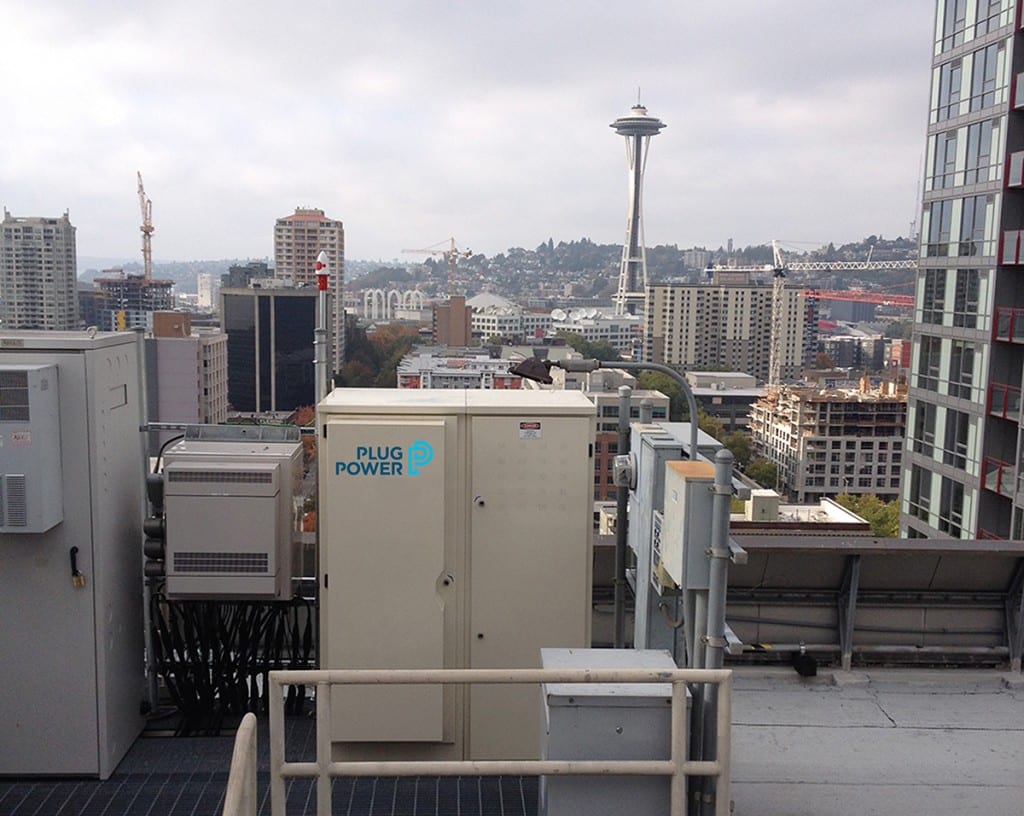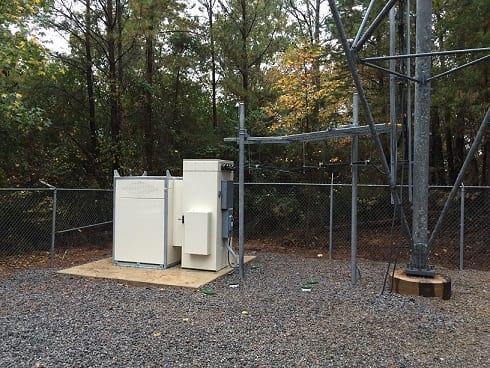FAQ from potential GenSure fuel cell customers
Tags: fuel cell battery, fuel cell generator, hydrogen generator
Plug Power currently has supplied more than 4,000 GenSure fuel cells to communications customers including Southern Linc, AT&T and CSX. Today, we’re answering the top questions we receive from professionals considering a switch to hydrogen and fuel cells for their corporate backup power needs.
What is a fuel cell? Through an electrochemical reaction, fuel cells convert hydrogen fuel into power without combustion, and with only heat and a small amount of water as byproducts. This video shows the simplicity of the reaction. Plug Power fuel cells are clean, made-in-America products being used today by leaders in a number of different markets, including utilities, telecommunications, railroads and government agencies. Fuel cells enable these professionals to increase site reliability while decreasing operational costs and making progress toward sustainability goals.
How does a fuel cell work in my network? A fuel cell generally takes the place of a combustion generator. In a communications network, the fuel cell sits on the DC bus, along with a small battery plant. The fuel cell monitors the battery voltage and turns on when the voltage drops to a certain pre-set level. A voltage drop means that the primary source of power (utility grid, solar, etc.) has stopped providing enough power (a grid outage, nighttime for solar, etc.). The fuel cell provides power until it senses that the primary power source has returned and can properly maintain the batteries. The fuel cell then shuts down until the next time it is needed.
Where do I get hydrogen fuel? There are multiple sources for hydrogen. (1) Plug Power offers GenFuel hydrogen services, offloading the responsibility to us; (2) Third-party contractors also offer hydrogen fueling services; (3) A customer may choose to manage their own hydrogen, contracting with one of a number of available hydrogen providers. In all cases, a customer decides how much runtime they wish to maintain at each site, according to their company policies – and the appropriate hydrogen storage tanks are provided.
Will fuel cells improve the reliability of my network? Third-party testing has deemed Plug Power’s GenSure fuel cell products 99.6% reliable. Compared to reported combustion generator reliability of up to 88%, this is significant. Additionally, fuel cells maintain the health of the small battery plant required for each site at levels that increase the longevity and reliability of the entire DC plant.
How will fuel cells impact my bottom line? There are a number of ways fuel cells can save money:
-
- At lower power levels, fuel cells enable a network operator to consolidate their power and communications equipment into one cabinet, dropping the capital cost by eliminating the need to build a shelter and reducing the amount of space a company needs to lease for each site. In many cases, this is the lowest capital-cost solution.
- Fuel cell maintenance is significantly less intensive than combustion generator maintenance, dropping the number of times per year a tech needs to visit the site as well as the amount of work required each time. Fuel cell maintenance consists of an air filter inspection/replacement annually and a fueling system inspection each time hydrogen is added to the storage tanks. Combustion generator maintenance requires care for multiple systems every three months. At the end of the year, the difference in cost is thousands.
How do fuel cells help me meet my corporate sustainability goals? Fuel cells are clean, zero-emission power solutions. Unlike with combustion generators, fuel cells have no hazardous emissions, particulates or requirements for emissions reporting. Additionally, they are quiet enough to be easily located in neighborhoods and national parks.
How can I find out if hydrogen fuel cells are right for my operation? Contact Plug Power to discuss specific requirements and solutions.
#InfiniteDrive

